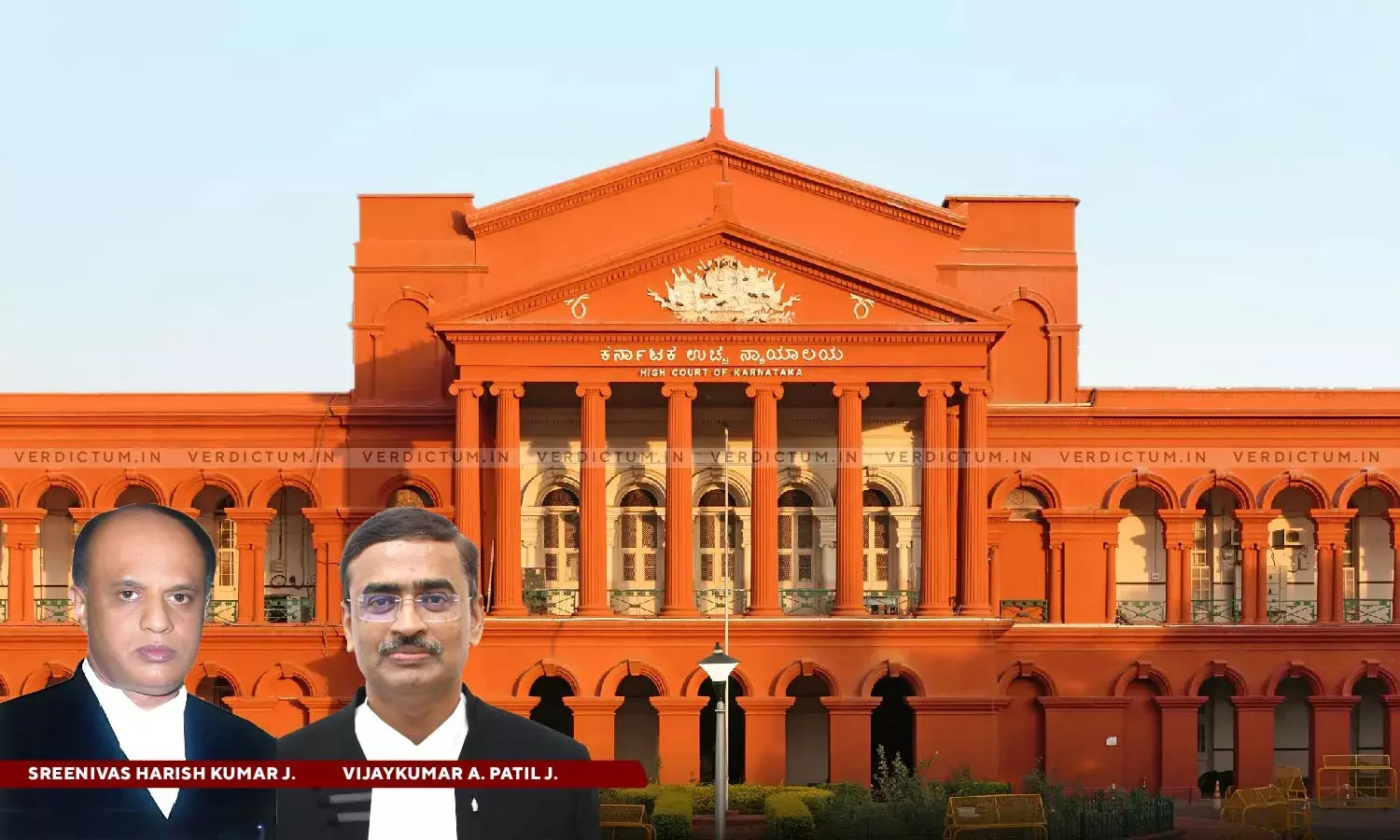If Applications For Default Bail & For Extension Of Custody Period Are Filed, Bail Cannot Be Granted Unless Prayer For Time Extension Is Rejected: Karnataka HC
The Karnataka High Court reiterated that whenever two applications, one for the Default Bail under Section 167(2) CrPC by the Accused and another for the extension of custody by the State are filed together, bail cannot be granted unless the prayer for extension of custody is rejected.
A writ petition was filed praying to quash the order passed by the Session Court of National Investigation Agency cases which allowed the application filed by the State seeking an extension of the period of investigation beyond 90 days under Section 43D(2) of the Unlawful Activities (Prevention)Act, 1967, consequently, failed to appreciate the default bail filed under Section 167(2) of Cr. P.C.
The Division Bench of Justice Sreenivas Harish Kumar and Justice Vijaykumar A. Patil observed that “In this case the trial court decided the applications together and found that the respondent had come up with specific reasons to seek extension of custody period of the petitioner. Obviously once the application of the respondent was allowed, the petitioner’s application for bail had to be dismissed. Since it was not urged before us that there were no specific and valid reasons for extending the custody period of the petitioner, we need not examine that aspect of the matter. In the result, writ petition is to be dismissed and ordered accordingly.”
Advocate Haleema Ameen appeared for the Petitioner while Special Public Prosecutor P. Prasanna Kumar appeared for the Respondent.
The Court said two applications must be considered together irrespective of the time of their filing. Consideration of two applications together does not arise in case the application by the accused for default bail has already been made, at least a day before the application for extension is filed. If two applications are made on the same day, there is no other go but to decide the two applications together.
The Bench relied on the landmark Supreme Court observations in Sanjay Dutt vs State, Hitendra Vishnu Thakur vs State of Maharashtra and M.Ravindran vs Directorate of Revenue Intelligence.
The Court held that “The answer to the question as to which application gets priority is found in the judgment of the Supreme Court in the case of Sanjay Dutt (supra), a decision on which Smt. Haleema Ameen has relied in the context of her point of argument in regard to indefeasible right available to an accused in case of non-filing of charge sheet. While answering this point, the Supreme Court has also made it clear that whenever two applications, one for default bail and another for extension of custody period, are filed, no bail can be granted unless the prayer for extension of time is rejected.”
The Petitioner is an accused under Section 302 of the Indian Penal Code, Arms Act and Sections 16, 18, 19 and 20 of the UAP Act.
Section 43D (2) (a) of the UAP Act states that whenever the offences punishable there under are invoked in a case, Section 167 of Cr. P.C. is applicable with a modification that wherever there is a reference to “fifteen days”, “ninety days” and “sixty days”, it shall be read as “thirty days”, “ninety days” and “ninety days” respectively.
In the present case, after the expiry of ninety days, neither the Petitioner made an application claiming bail nor the Respondent filed a charge sheet or extension application. When the case was called, an application for an extension of time was made on behalf of the investigating agency in the morning session of the court and the Petitioner also made an application under Section 167 (2) of Cr.P.C. in the afternoon session.
For the above reasons, the Court dismissed the writ petition.
Cause Title: Mohammed Jabir v. National Investigation Agency (Neutral Citation: 2024:KHC:10047-DB)
Appearances:
Petitioner: Advocate Haleema Ameen
Respondent: Special Public Prosecutor P. Prasanna Kumar




